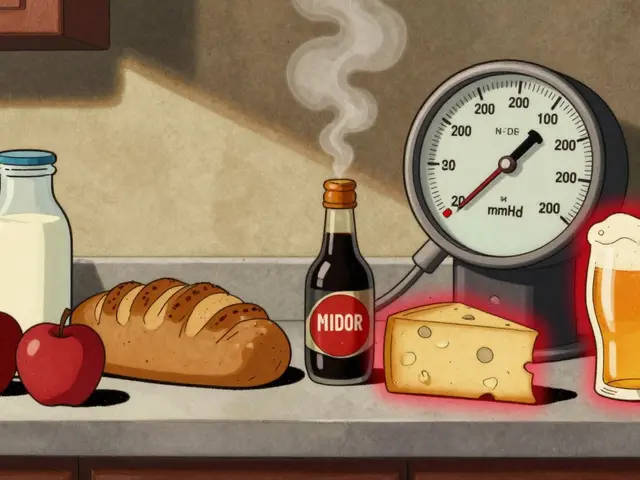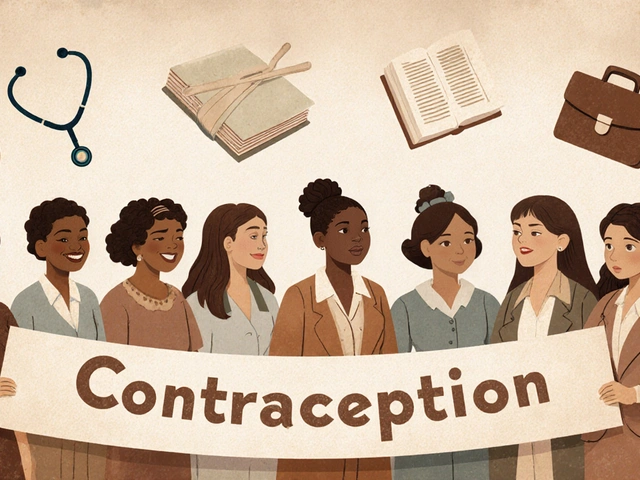Lung Health: Practical Steps, Common Medicines, and When to Get Help
Want better breathing? Your lungs are simple in function but sensitive to damage. Chronic lung problems like COPD and pulmonary arterial hypertension change day-to-day life, but small changes can help you feel a lot better fast.
First: stop smoking if you do it. Smoking speeds lung damage and makes medications less effective. Vaccines matter — get your flu shot and COVID boosters on schedule to avoid infections that can get into your lungs. Watch indoor air: avoid secondhand smoke, reduce dust, use a HEPA filter if you have allergies, and check outdoor air quality before heavy exercise.
Know the warning signs. Shortness of breath that limits activity, new chest pain, a cough with bloody or foul-smelling sputum, or swelling in your legs with sudden breathlessness need prompt medical attention. If you suddenly feel very short of breath or blue lips, call emergency services.
Medications and safety tips
Inhalers and bronchodilators help most breathing problems, but not all are the same. Read the guide "Primatene Mist vs. OTC Inhaler Alternatives" to learn which over-the-counter options are safer and when you need a prescription inhaler. For pulmonary arterial hypertension, drugs like ambrisentan can change outcomes — see "Ambrisentan and the LGBTQ+ Community" for practical care points and access tips.
Antibiotics and diuretics matter too. Serious lung infections sometimes need strong antibiotics such as Linezolid (covered in "How to Buy Zyvox Online Safely"). Fluid in the lungs from heart failure often calls for diuretics like Lasix — the Lasix article explains how that works and what to watch for.
Simple daily habits that help
Practice breathing exercises: try pursed-lip breathing and diaphragmatic breaths for ten minutes a day to reduce breathlessness. Stay active with walking or light cycling; even short, daily sessions improve endurance. Keep hydrated and follow salt limits if you have heart or fluid issues. If you use multiple meds, check for interactions — for example, some citrus fruits can change how drugs work ("Citrus Drug Interactions").
Testing and follow-up are key. Ask your clinician for spirometry, oxygen checks, and a chest x-ray when symptoms change. If you manage meds online, pick verified pharmacies and keep prescriptions current. Use our related articles list to find deeper info on specific drugs, inhalers, and treatment options.
See a specialist if you need oxygen at rest, have repeated hospital stays for breathing, or your spirometry shows rapid decline. Pulmonologists can arrange pulmonary rehab, prescribe oxygen or advanced meds, and help manage sleep apnea which often worsens lung symptoms. Smoking cessation programs, nicotine replacement, or meds like varenicline increase quit rates. Pulmonary rehab classes teach pacing, energy conservation, and safe exercise. If cost or access is a problem, ask about community programs or telehealth follow-ups; many clinics offer sliding-scale or virtual rehab options.
Start simple; stay consistent.

Emphysema and Life Expectancy: What You Really Need to Know
Emphysema has a huge impact on life expectancy and everyday life. This article breaks down what really happens to your body, what numbers and studies say, and what you can do to breathe easier and maybe live longer. We dig into causes, symptoms, treatments, and real-life coping tips that make dealing with emphysema just a bit more manageable.
Read More




